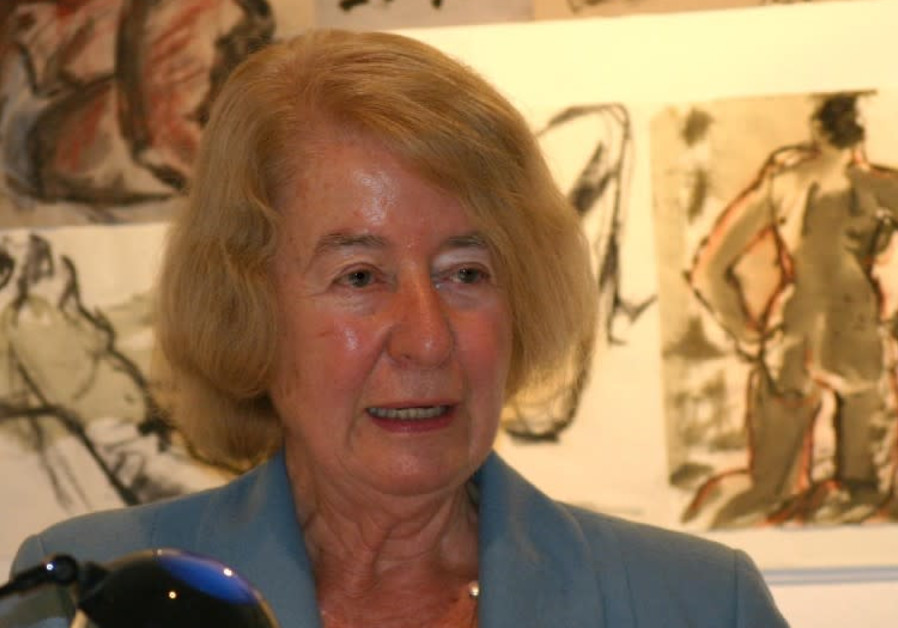Hilde Schramm, who lives in Berlin, was a former Green Party politician in the city. In 1994, she founded the Zurückgeben Foundation, whose name can be translated as “restitution” or “to give back.”

The US-based Obermayer Foundation honored the 82-year-old daughter of Hitler’s architect Albert Speer, Hilde Schramm, with its German-Jewish History Award for her support of German-Jewish women’s projects.
Schramm, who lives in Berlin, was a former Green Party politician in the city. In 1994, she founded the Zurückgeben Foundation, whose name can be translated as “restitution” or “to give back.”
According to the foundation, the organization “supports women of Jewish background or Jewish faith who live in Germany and are creatively active in scholarship and in the arts. The foundation does this in recognition of the willful destruction of the livelihoods of Jewish people during the National Socialist era.”
In an article on Monday in the Berliner Zeitung, Schramm said she was aware of the historical meaning of the Nuremberg conviction of her Nazi father, who became Nazi Germany’s minister of armaments and war, and who was sentenced to a 20-year prison term.
“Clarity to have is simpler,” she said. “I had the chance to work on it.” She contrasted her confrontation with her father’s Nazism with many others of her generation who repressed the Nazism of their families.
Former US Supreme Court justice Robert Jackson, the chief US prosecutor at Nuremberg, said, “Speer, as minister of armaments and production, joined in planning and executing the program to dragoon prisoners of war and foreign workers into German war industries, which waxed in output while the laborers waned in starvation.”
The foundation created by Schramm issued a statement that said, “Many non-Jewish Germans profited directly or indirectly from the disenfranchisement of the Jews, the expropriation of their property, the expulsion from their homes and their murder across Europe.
These benefits and advantages continue from one generation to the next. In many families the subject has never been broached.
“These very common and unspectacular benefits and advantages are difficult to grasp legally. The victims are often unknown. The foundation offers the possibility, regardless of laws and statutes of limitation, to voluntarily and symbolically give something back through donations and legacies.”
Schramm earned a doctorate in education.
The Obermayer Foundation’s website said it “provides annual awards to five non-Jewish Germans who have made extraordinary contributions to preserving Jewish history, culture, cemeteries and synagogues in their own local communities. The awards are co-sponsored by the Berlin Parliament and given in its elegant plenary chamber.”
The foundation wrote of Schramm: “It’s no surprise, really, that when Schramm inherited three valuable paintings in 1992 that she suspected had been stolen from Jewish families during the Nazi era, she didn’t keep them or even simply give them away. First, she conducted an exhaustive search for the original owners. When they couldn’t be traced, she sold the paintings and used the money to start the Return Foundation for the Promotion of Jewish Women in the Arts and Sciences (Zurückgeben). Then she used the foundation as a platform to raise awareness about the huge amount of property that had been stolen from Jewish families from 1933 to 1945 and, in many cases, still remains in the possession of Germans today.”
As reported by The Jerusalem Post
